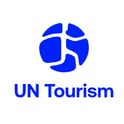UNWTO and WHO To Build Coalition of Health and Tourism Partners
UNWTO will work with the WHO Regional Office for Europe (WHO/Europe) to strengthen ties between tourism and public health in Europe’s smallest states.
The COVID-19 pandemic has shown the importance of building more sustainability and resilience into both economies and public health systems. Recognizing the need to learn from the lessons of the crisis, the two UN agencies will further develop their collaboration and strengthen cooperation. In the eighth high-level meeting of the WHO/Europe Small Countries Initiative (SCI), held in Bečići, Montenegro, UNWTO set out the case for promoting health and sustainable tourism in small countries, including the 11 European countries with fewer than 2 million people.
UNWTO Secretary-General Zurab Pololikashvili told the meeting: “COVID-19 showed that any crisis that threatens the health, safety and security of people, communities and the environment is also a risk to tourism itself. I am confident that strong cooperation at all levels will place health high on the tourism agenda. It will make for healthy tourists, healthy communities, a healthy environment, and healthy economies for current and future generations.”
Montenegro Statement on health and tourism
Organized around the theme “Towards better health and well-being in small countries of the WHO European Region”, the ministerial event focused on two issues currently at the top of the agenda for small countries, namely emergencies (long-term prevention, health system preparedness, response and recovery) and developing healthy and sustainable tourism. On the occasion of the meeting, the “Roadmap towards better health in small countries in the WHO European Region 2022–2025” was presented and the “Montenegro Statement” was unanimously adopted.
The “Montenegro Statement” recognizes that health and tourism are deeply interconnected in the globalized world, and the reopening of travel and tourism is crucial for economic recovery, jobs and livelihoods in small countries. It highlights that cooperation and collaboration are required and welcomes and supports the creation of a coalition of partners on health and tourism, jointly coordinated by the WHO Regional Office for Europe and the UNWTO to elaborate the evidence for policy measures and facilitate country dialogue.
Long-standing collaboration
UNWTO and WHO have kept regular coordination since the outbreak of the pandemic and WHO has participated in the Global Tourism Crisis Committee, created in March 2020 to guide the tourism sector and formulate a sector-wide response
to the unprecedented challenge of the COVID-19 pandemic and restart tourism with data-driven decisions based on scientific evidence.
RELATED LINKS:
About UN Tourism
The World Tourism Organization (UN Tourism) is the United Nations agency responsible for the promotion of responsible, sustainable and universally accessible tourism.
As the leading international organization in the field of tourism, UN Tourism promotes tourism as a driver of economic growth, inclusive development and environmental sustainability and offers leadership and support to the sector in advancing knowledge and tourism policies worldwide.
Our Priorities
Mainstreaming tourism in the global agenda: Advocating the value of tourism as a driver of socio-economic growth and development, its inclusion as a priority in national and international policies and the need to create a level playing field for the sector to develop and prosper.
Promoting sustainable tourism development: Supporting sustainable tourism policies and practices: policies which make optimal use of environmental resources, respect the socio-cultural authenticity of host communities and provide socio-economic benefits for all.
Fostering knowledge, education and capacity building: Supporting countries to assess and address their needs in education and training, as well as providing networks for knowledge creation and exchange.
Improving tourism competitiveness: Improving UN Tourism Members' competitiveness through knowledge creation and exchange, human resources development and the promotion of excellence in areas such as policy planning, statistics and market trends, sustainable tourism development, marketing and promotion, product development and risk and crisis management.
Advancing tourism's contribution to poverty reduction and development: Maximizing the contribution of tourism to poverty reduction and achieving the SDGs by making tourism work as a tool for development and promoting the inclusion of tourism in the development agenda.
Building partnerships: Engaging with the private sector, regional and local tourism organizations, academia and research institutions, civil society and the UN system to build a more sustainable, responsible and competitive tourism sector.
Our Structure
Members: An intergovernmental organization, UN Tourism has 160 Member States, 6 Associate Members, 2 Observers and over 500 Affiliate Members.
Organs: The General Assembly is the supreme organ of the Organization. The Executive Council take all measures, in consultation with the Secretary-General, for the implementation of the decisions and recommendations of the General Assembly and reports to the Assembly.
Secretariat: UN Tourism headquarters are based in Madrid, Spain. The Secretariat is led by the Secretary-General and organized into departments covering issues such as sustainability, education, tourism trends and marketing, sustainable development, statistics and the Tourism Satellite Account (TSA), destination management, ethics and risk and crisis management. The Technical Cooperation and Silk Road Department carries out development projects in over 100 countries worldwide, while the Regional Departments for Africa, the Americas, Asia and the Pacific, Europe and the Middle East serve as the link between UN Tourism and its 160 Member States. The Affiliate Members Department represents UN Tourism's 500 plus Affiliate members.
UN Tourism Communications Department
+34 91 567 8100
UN Tourism
